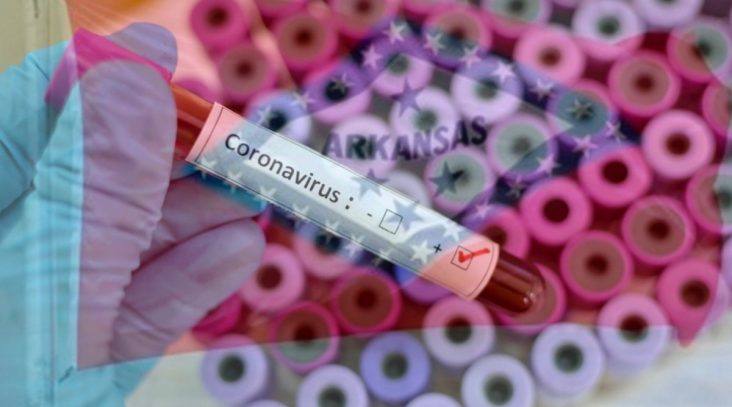Gov. Hutchinson announces two-day COVID-19 testing ‘surge’
by April 23, 2020 2:59 pm 1,031 views

Arkansans are being asked to consider participating in the two-day “Arkansas Surge Campaign” in an effort to boost the number of COVID-19 tests conducted, Gov. Asa Hutchinson announced Thursday (April 23) during his daily press conference. The surge will happen Friday and Saturday.
The governor said the surge goal is to boost testing from an average of around 1,000 a day to 1,500 a day.
“And then we’ll see where we are next Monday, and we’ll see what kind of changes we need to make,” the governor said, adding that the state will implement a quick marketing campaign to push awareness of the surge.
Following are four parts of the surge plan recommended by the state medical advisory group and accepted by the governor.
• Expand COVID-19 testing for all people with symptoms consistent with the virus and those with a history of potential exposure.
• Expand testing for contact investigations.
• Screen for COVID-19 in high-risk settings.
• Develop a state strategy for serosurveillance (antibody testing).
“There is an inventory available out there for testing right now all across the state of Arkansas. And so, Arkansans, we’re asking you over the next two days, if you’ve thought about it before, if you think you’ve got the symptoms or you’ve got flu-like symptoms, or you are in at-risk categories, and you’ve been traveling, you want to get tested, go in there. Let’s get tested over the next two days. It will help us to know better where we are here in the state of Arkansas,” Gov. Hutchinson said.
The governor stressed that those wanting testing should first contact a physician.
Arkansas Secretary of Health Dr. Nate Smith said the surge is not only about testing more people, but “to get actionable information to interrupt the spread of COVID-19.” The antibody testing, if a testing plan is approved and utilized, could provide more information than who now has the virus. For example, a study of 3,000 people in New York state showed that 14% had COVID-19 antibodies, which means they had the virus and recovered without knowing they were infected.
University of Arkansas for Medical Sciences Chancellor Dr. Cam Patterson said the two primary barriers to antibody testing are that such tests are not now as reliable as needed, and science does not yet know enough “about the biology of COVID-19 infection.”
Known COVID-19 cases in Arkansas totaled 2,465 as of Thursday afternoon, up from 2,276 on Wednesday. Of the 189 new cases between Wednesday and Thursday, 122 were inmates in the Cummins unit of the Arkansas Department of Corrections in southeast Arkansas.
Of the total of cases, 1,371 are active, with the remainder accounting for deaths and recoveries. The number of deaths rose from 42 to 45 from yesterday. The number of COVID patients hospitalized in Arkansas was 101 on Thursday, up from 97 on Wednesday.
Of the COVID-19 patients, 24 were on ventilators, up from 23 on Wednesday.
As of Thursday at 1 p.m., there were 854,490 U.S. cases and 47,178 deaths. Globally, there were 2,678,585 cases and 186,640 deaths.
Smith said there are 687 inmates and 35 staff at Cummins prison who have tested positive. At the Forrest City federal prison, where workers from the U.S. Centers for Disease Control and Prevention are responding to the outbreak there, 75 inmates and 10 staff have tested positive. Smith said the numbers at Forrest City are likely to grow as the CDC increases testing.
Also on Thursday, the U.S. Department of Health and Human Services awarded $10.6 million in federal funds to support rural communities and further develop testing and prevention capabilities to combat the coronavirus crisis in Arkansas.
The Centers for Disease Control and Prevention will provide $6,894,830 to Arkansas that will allow expanded testing, enhanced contact tracing and implementation of containment measures so citizens can soon participate in increased economic activities.
The Arkansas Department of Health will receive $2,866,778 to support rural communities in their fight against the coronavirus. The funding provides rural hospitals the ability to respond to the unique needs of the community while boosting testing and laboratory services and the availability of personal protective equipment to minimize exposure to the disease.
The University of Arkansas System is the recipient of $828,571 to support its Telehealth Resource Center (TRC). The resource center provides telehealth interaction with patients and health providers to rural and underserved communities in the state.
The funding comes from the Coronavirus Aid, Relief, and Economic Security (CARES) Act, which became law last month.
